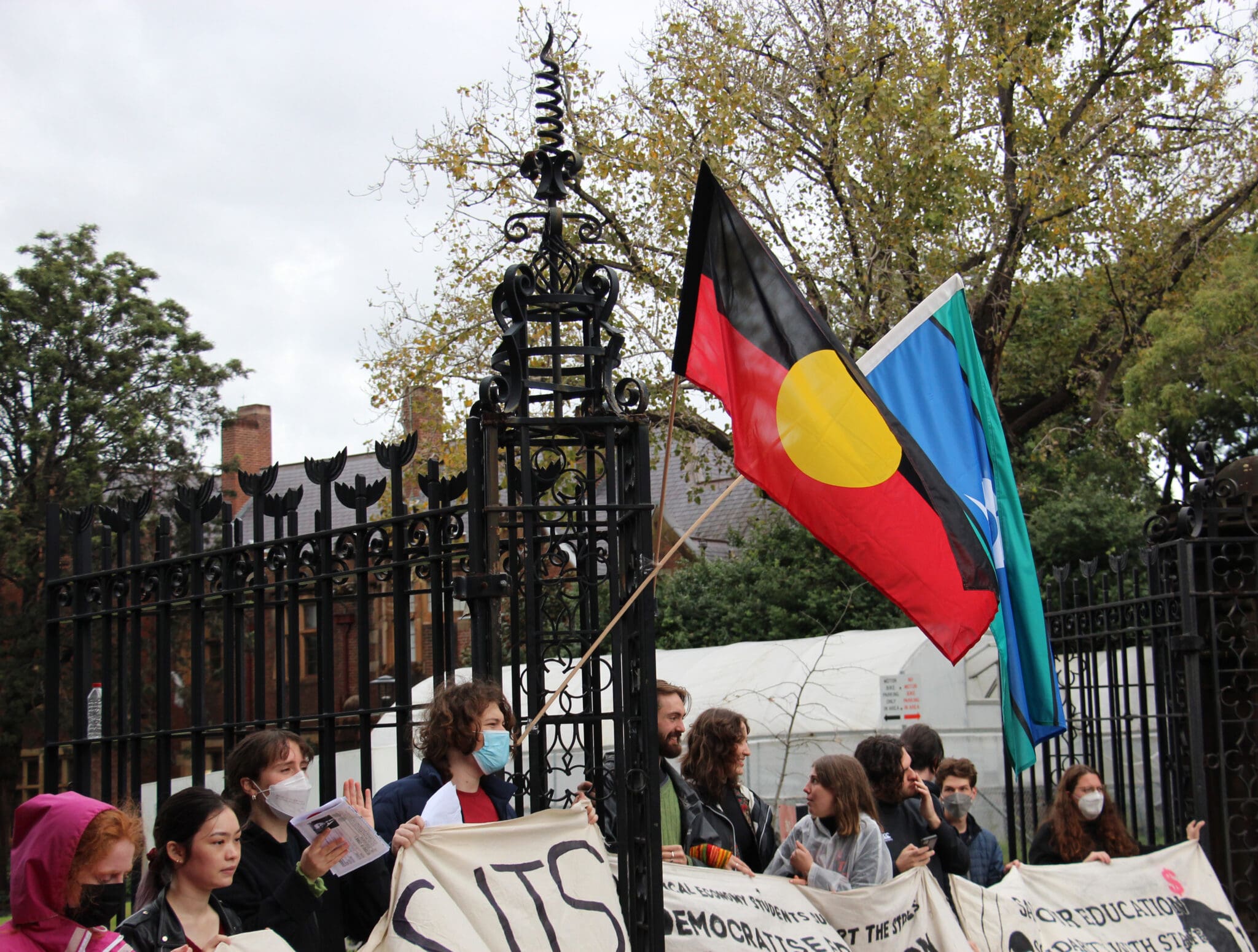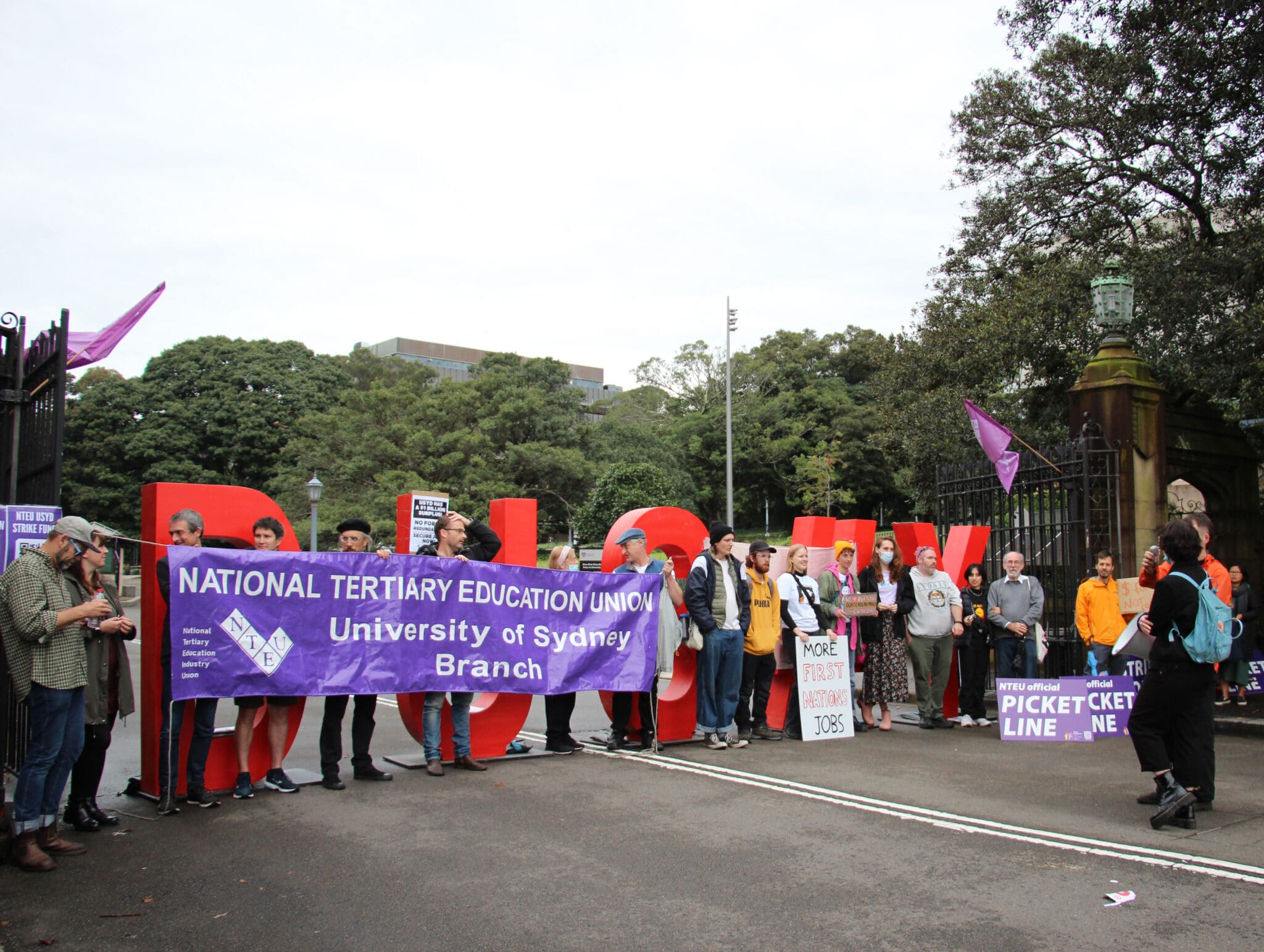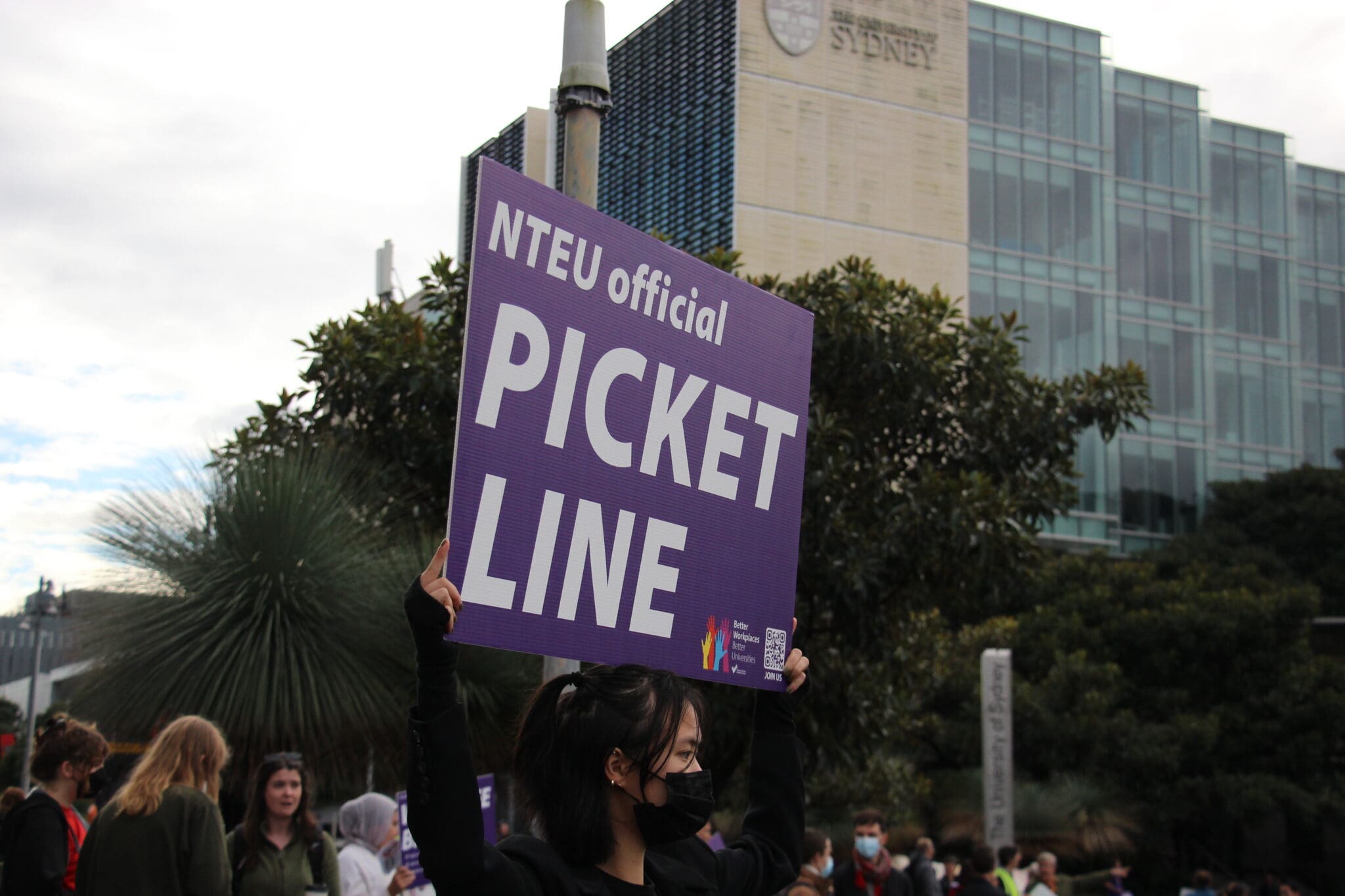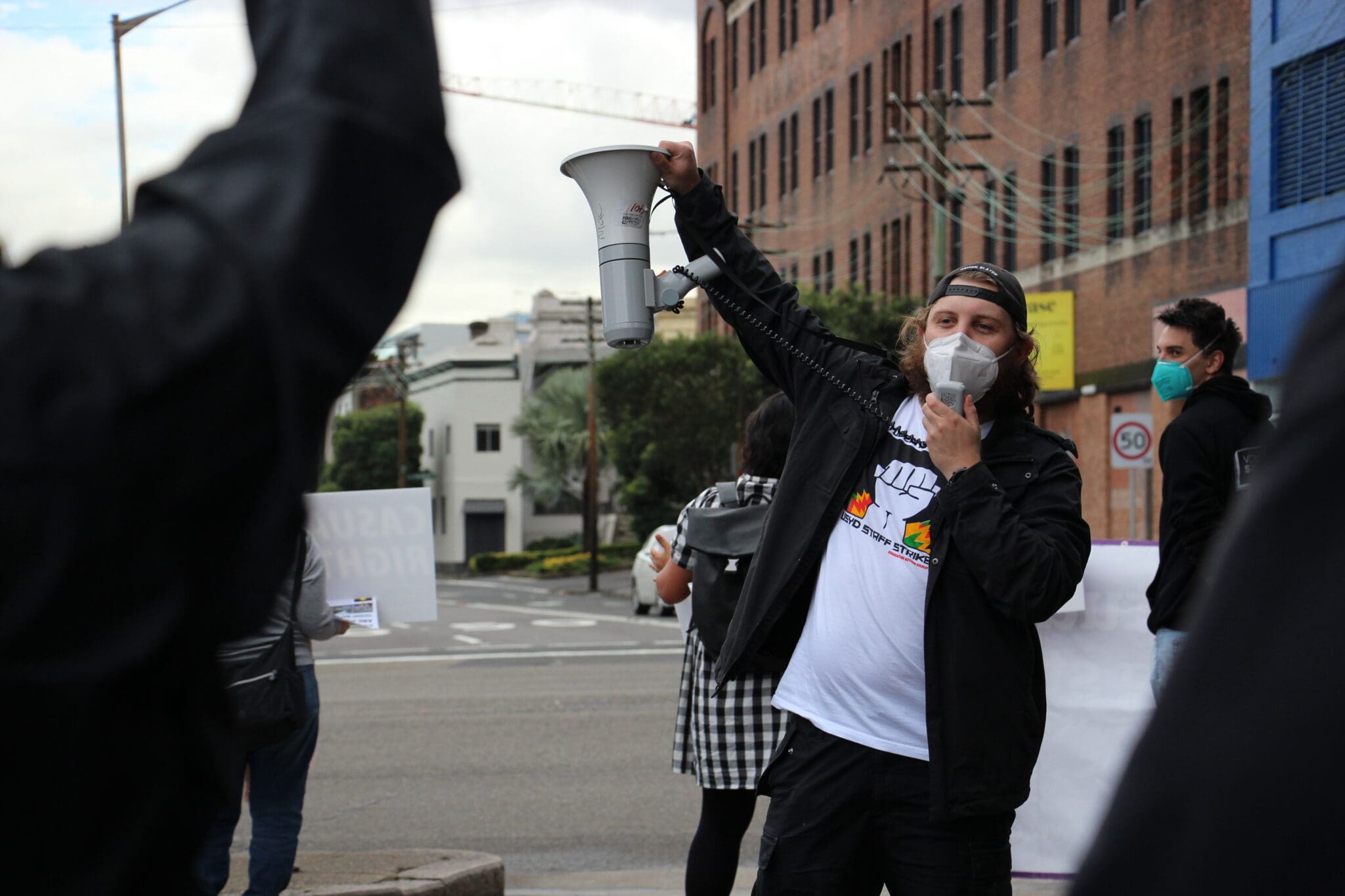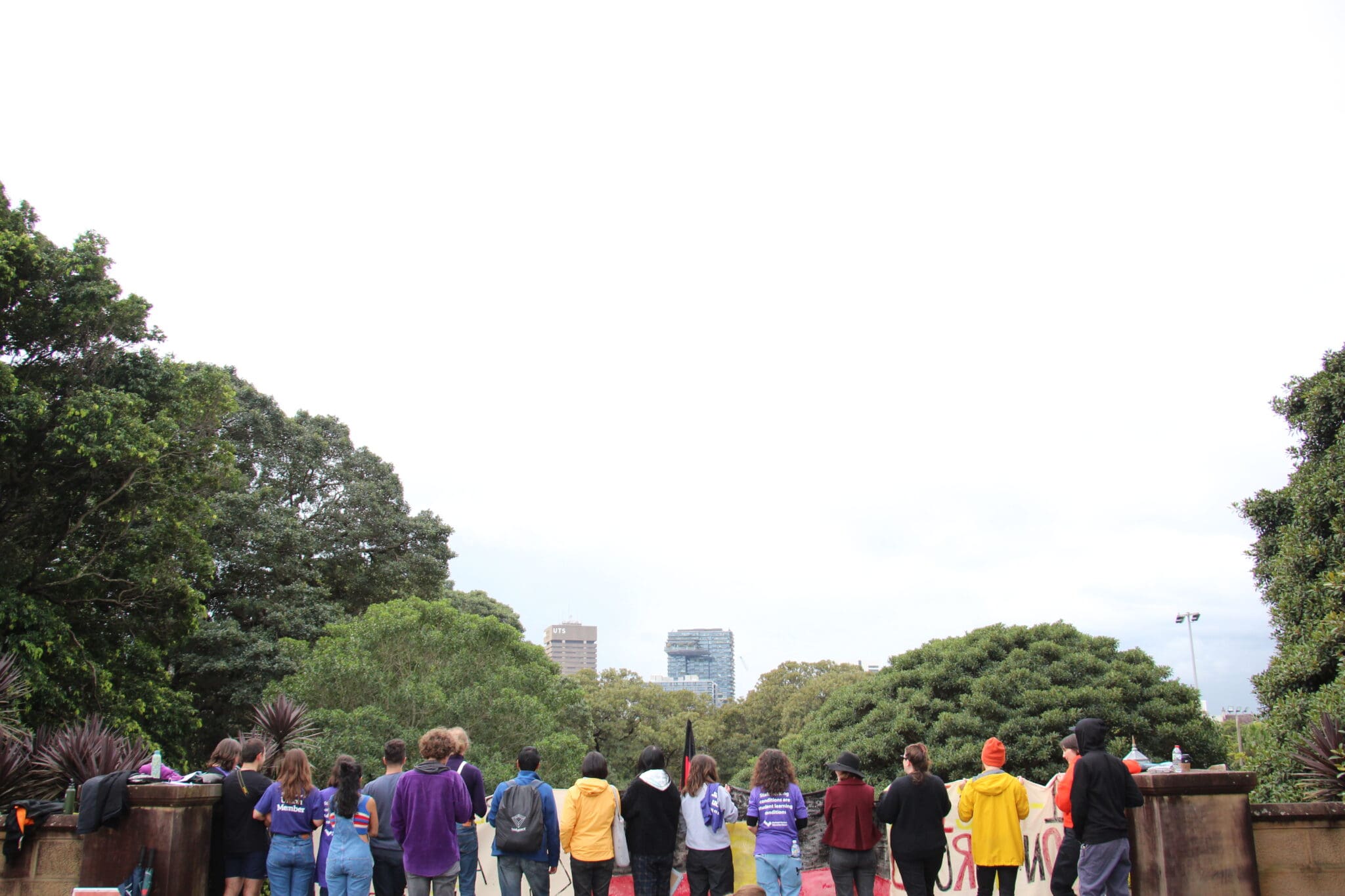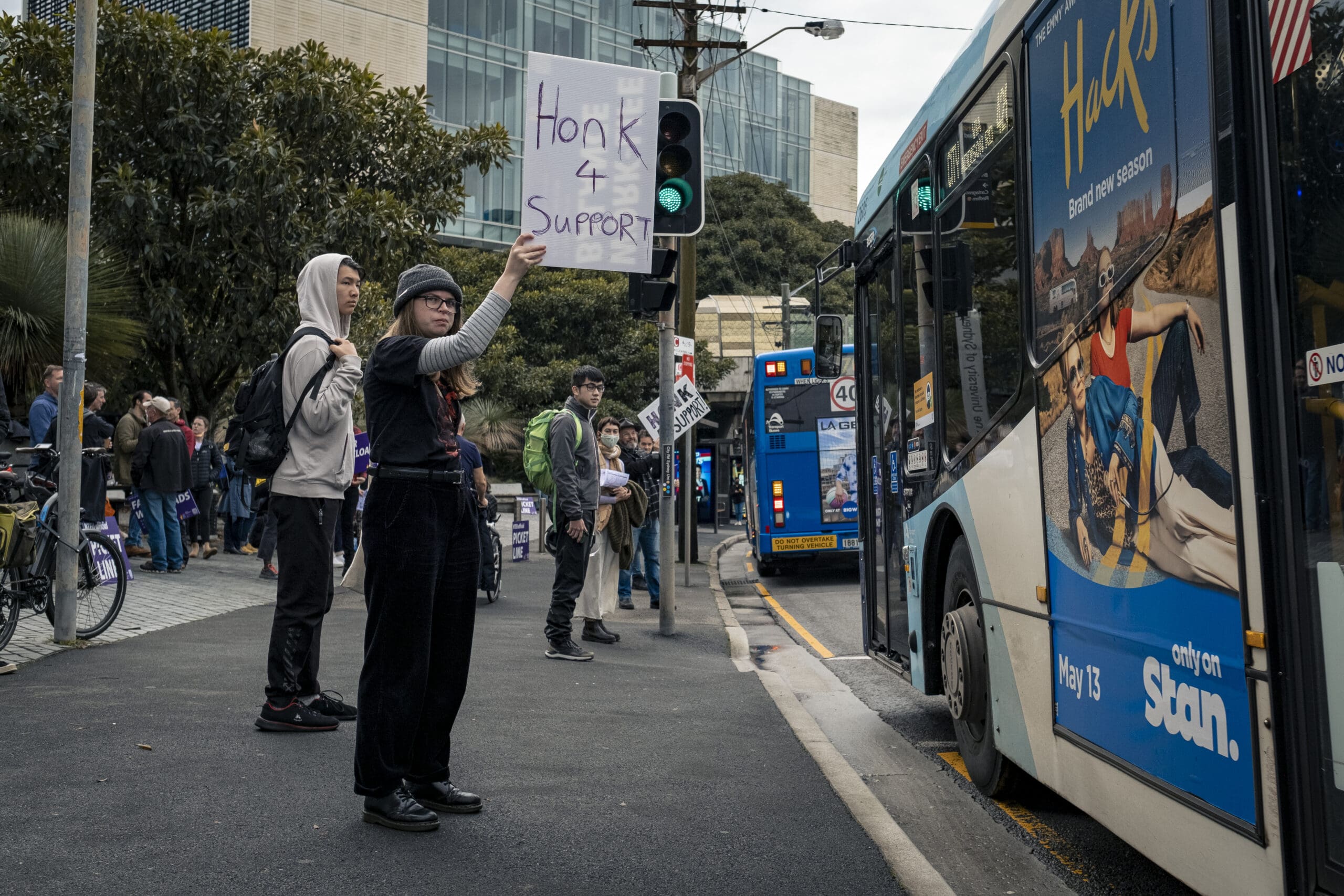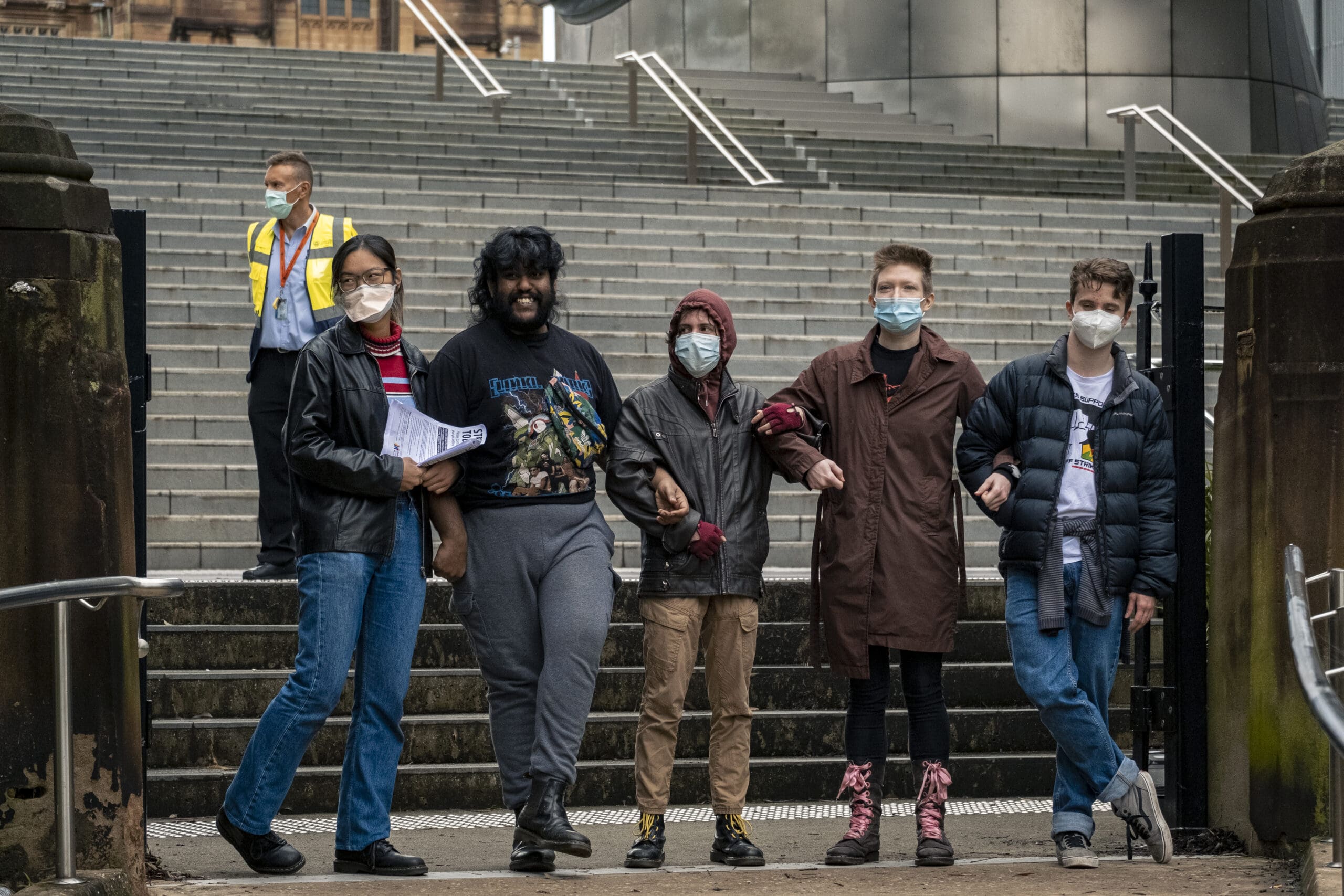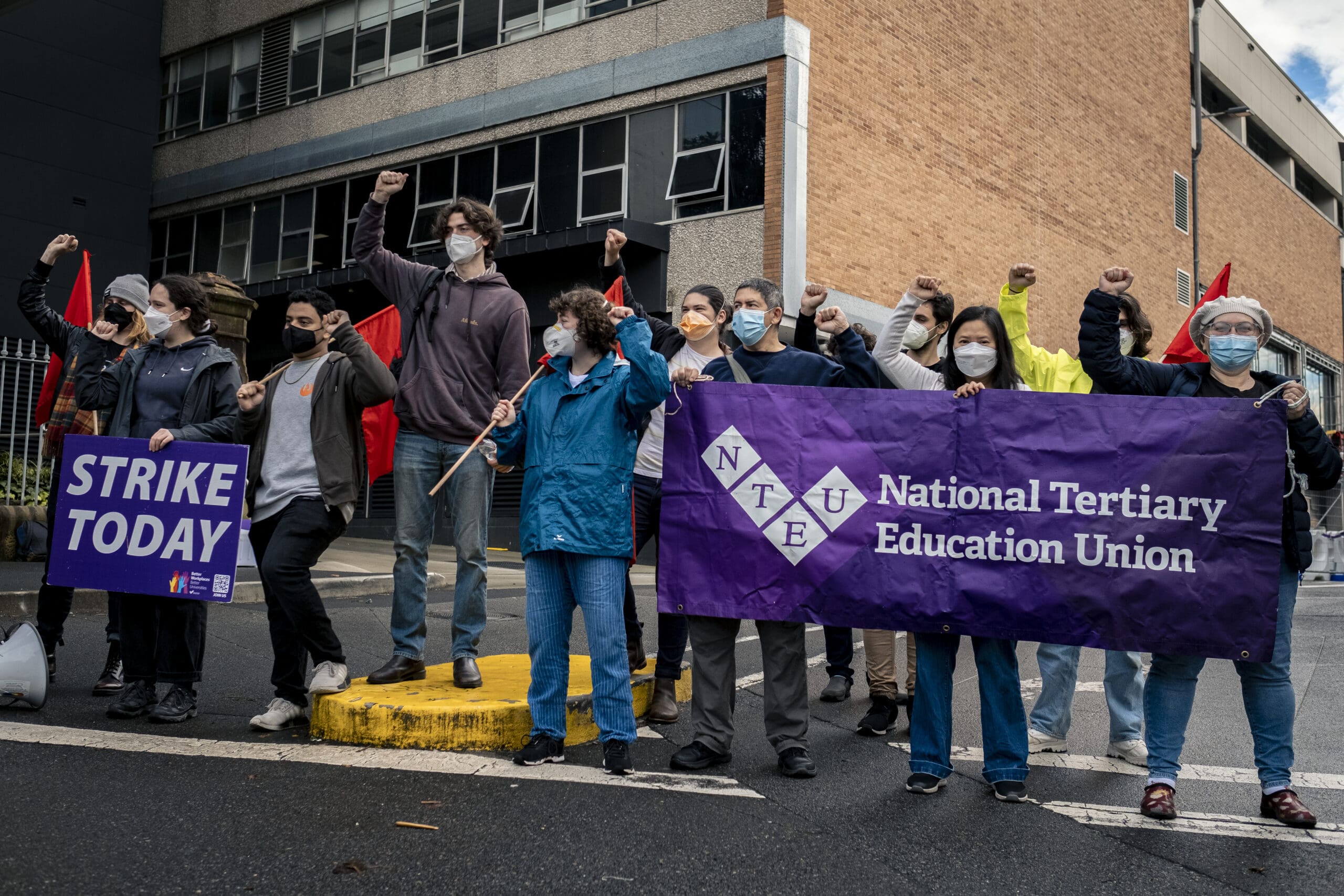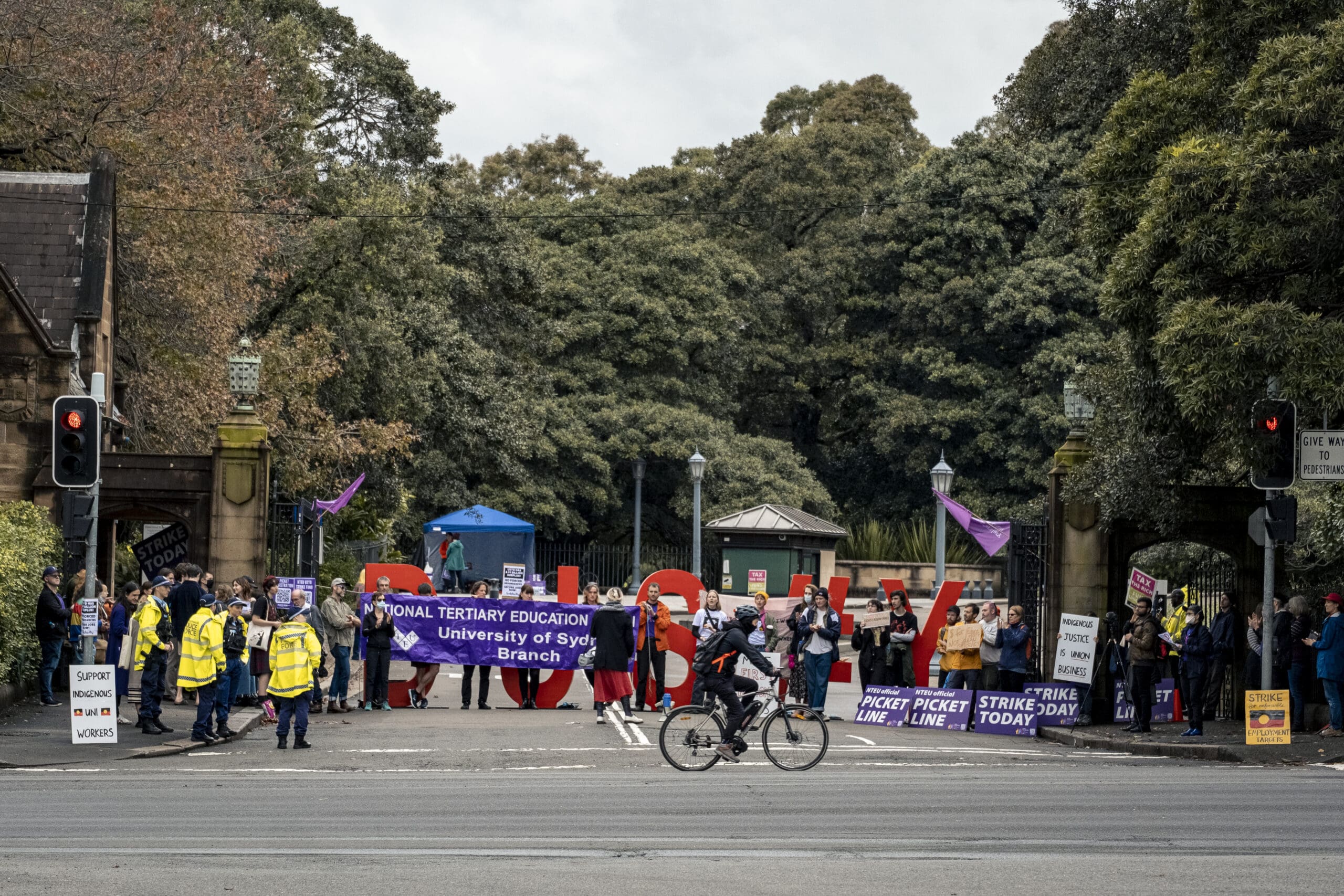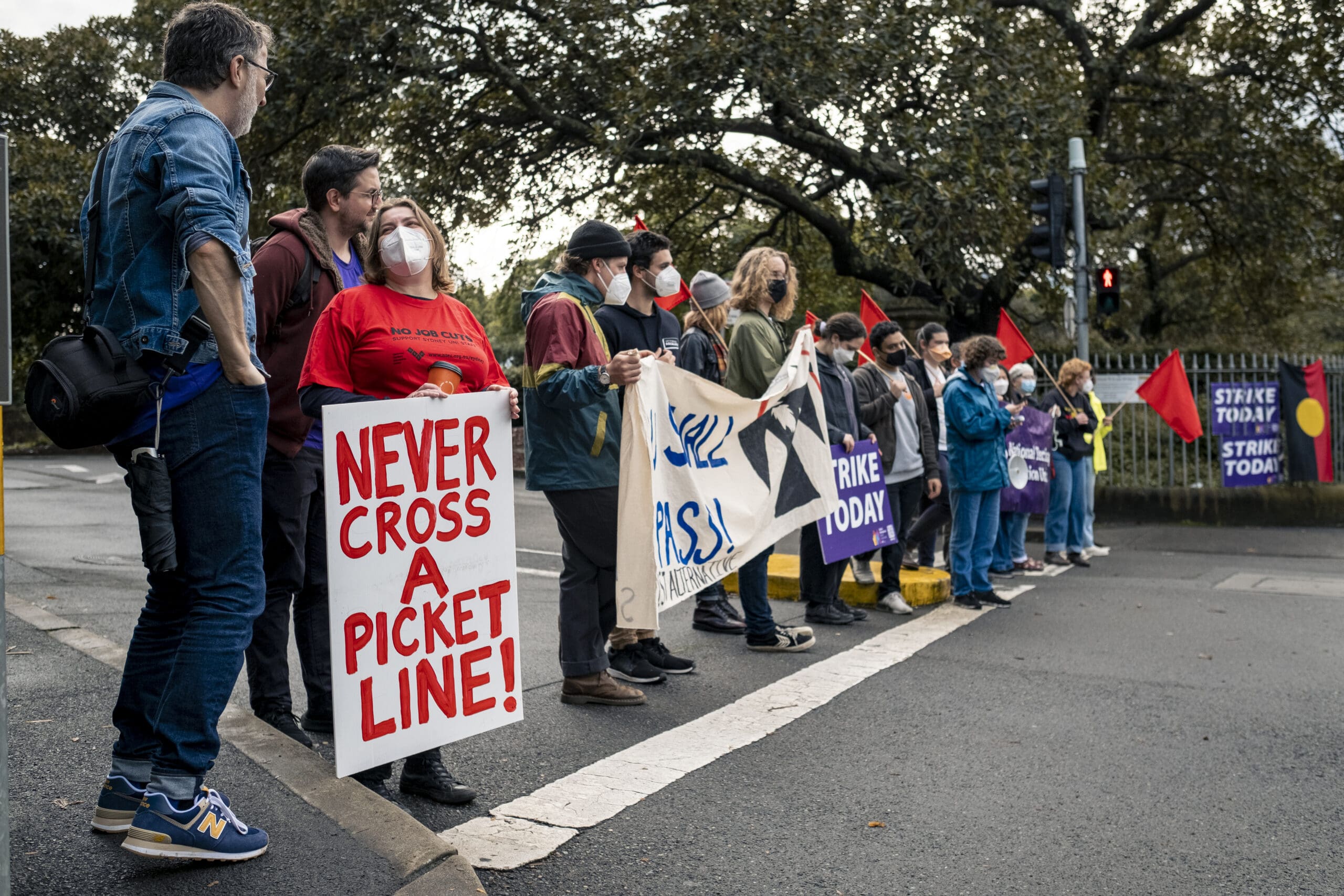Staff at the University of Sydney went on strike today for the third time this month. This is the first time that an NTEU branch has gone on strike with the specific focus of the working rights of Aboriginal and Torres Strait Islander people.
Pickets were held at seven entrances across the Camperdown campus, blocking anyone from entering the grounds. Similar to the strikes earlier this month, the pickets featured left-wing chants and singing, with activists making efforts to speak with people and cars if they attempted to enter the campus.
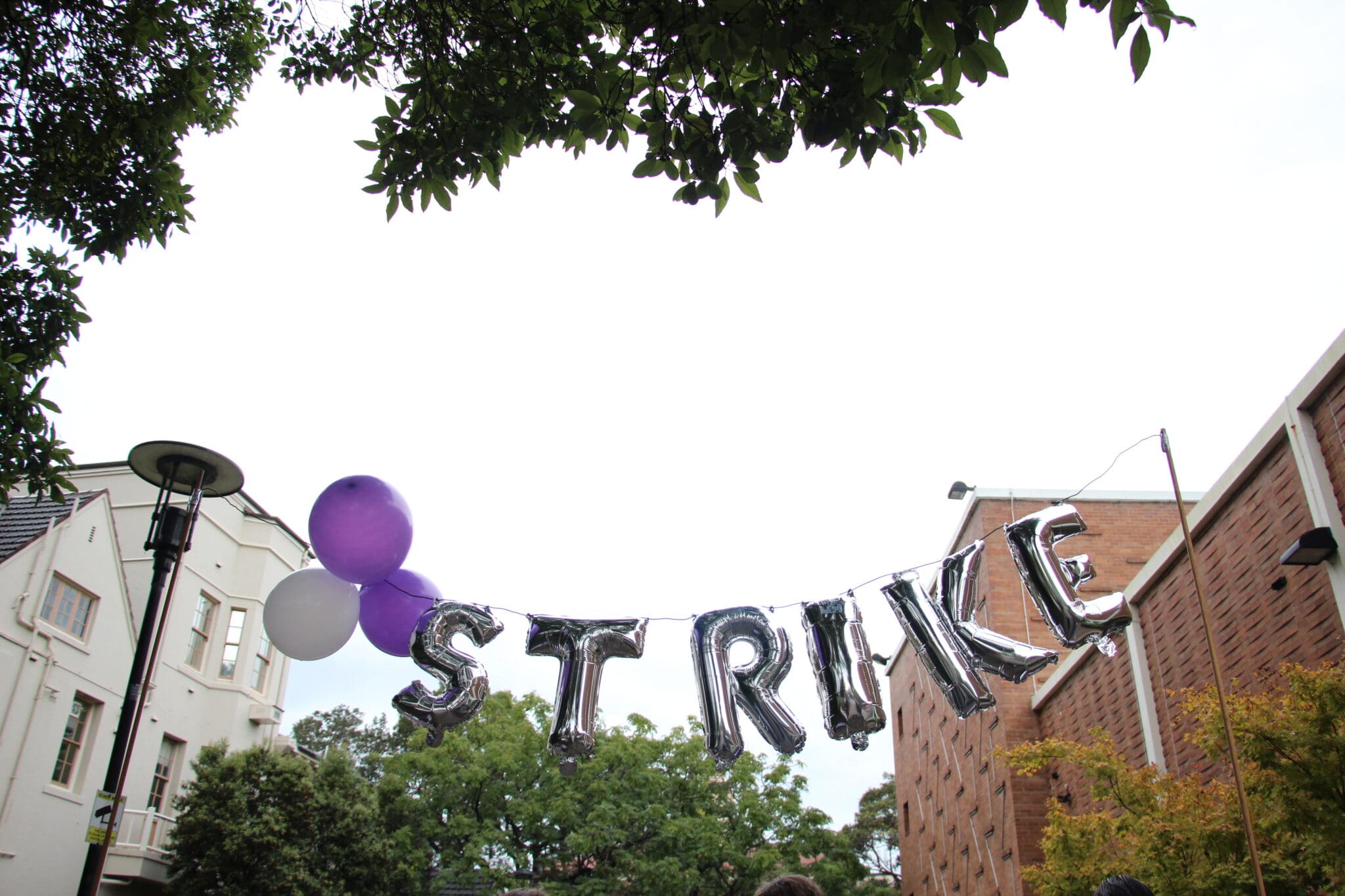
Strikes highlight ongoing issues with workers’ rights
NTEU USyd branch President Nick Riemer told Honi about the imperative to strike following a meeting between the NTEU and University management: “We offered to them last week to move in order to avert the strike, and they flatly refused. They have had ample opportunity to start listening to staff and respecting them, and they’ve shown that it’s just not on their agenda. So we’re out on strike again.”
There were also students from other universities supporting the strike, indicating concern across campuses towards the issues that University staff are facing. Guy Suttner, a student at UNSW who was on the picket, said that “every university suffers from the same issues. Excessive casualisation and staff being treated poorly… ultimately, students end up suffering in the end, so we need solidarity across universities”.
Staff on the picket lines expressed dismay at the precarious conditions under which casual staff are employed at the University, especially given the intensification of work over the last two decades.
Senior Lecturer and Chair for the Department of Theatre and Performance Studies Paul Swyer spoke to Honi of his discomfort at the way casual staff are often contracted on a “just in time” basis. This creates serious cash flow crises for staff and, on several occasions, has prompted Dwyer to offer his causal colleagues an interest free loan while they were waiting on payments from the University.
“If you’re going to struggle to make rent, I can give you a loan… and we can sort it out later down the track,” he said.
“That [I have to do that] is a joke. That is a joke. You know, this is such a wealthy institution.”
Dwyer also addressed the slow decline of the 40:40:20 working model, which guarantees academics paid time to research. On the Footbridge picket, he asked who got to spend two days (40 per cent of the week) on research. Nobody raised their hand but one responded: “That’s what the holidays are for”.
On the City Road picket, Honi spoke to School of Geosciences academic and former NTEU USyd branch President Kurt Iveson. He highlighted that management’s erosion of the 40:40:20 model was sending a message that academia is the preserve of the elite.
“[It communicates] that academia is for people who have the leisure time to do it, to do it on the weekends and people who don’t have that luxury don’t fit in the institution,” Iveson said.
“What kind of diversity of the teaching staff can we have, if those folks who have community responsibilities, carer responsibilities, and want to actually, actively contribute to civil society, can’t do anything else other than their job?” he said.
Strikes respond to USyd Annual Report
The strike comes the morning after the University’s 2021 Annual Report revealed a $1.04 billion surplus, which is equivalent to 25,000 average Australian salaries, and marks a dramatic rise from $106 million last year. The University’s operating expenditure also dropped by 2.2 per cent due to reductions in staff costs.
Addressing the crowd gathered at City Road comprised of amassed pickets from across the University, Nick Riemer condemned the University’s surplus: “That enormous pot of gold has come at the same time as staff-student ratios have plummeted, classrooms are more crowded… that surplus has come off the back of you and me, friends.”
“This University is stupendously rich and it can well afford the real and reasonable claims we are making in enterprise bargaining,” he said.
USyd SRC General Secretary Grace Lagan emphasised the significance of these findings to the work activists are doing. “We had a billion dollar surplus revealed in Honi yesterday, and the University is still refusing to meet staff’s demands,” she said.
She also spoke about the federal election result on the weekend as evidence of students’ collective power.
“The weekend showed that students, when they organise and vote in numbers, can secure leftwing governments… they should feel really emboldened to come out and secure wins on every campus.”
Violence towards strikers
Early on in the day, there was an incident on the New Law picket, involving an aggressive interaction between strikers and strikebreakers (otherwise known as scabs).
A former USyd student at the picket, who asked to remain anonymous, described the two incidents. The first involved a mother and son who were “very determined, very angry” and attempted to physically force themselves through the picket.
“The son pushed me and my friend into the railing, hitting my friend in the teeth as well,” the striker said.
A second incident saw a student from a different university, who wished to complete a Zoom exam in the library, level threats against the picket. “She was very threatening; we did manage to turn her away, but she was like ‘I’ll kill you, I’ll beat you up, I’ll kill you,’” the striker told Honi.
Speeches conclude the day
The separate pickets converged in front of F23 in pouring rain after midday for speeches.
Nick Riemer opened the rally, telling the crowd: “I want to pay respects to Aboriginal colleagues and comrades. Always was, always will be, Aboriginal land.”
Riemer emphasised the NTEU’s demands regarding First Nations staff, in particular, an enforceable 3 per cent hiring target.
“Sydney University cannot be a no-go zone for Aboriginal and Torres Strait Islander staff… it cannot be the case that Aboriginal and Torres Strait Islander numbers don’t grow, as they haven’t grown for the last ten years,” he said.
Jeremy Heathcote, an Indigenous member of the USyd Branch Committee of the union, talked about the importance of cultural safety on campus. “A few years ago, [Aboriginal] people wouldn’t walk through this campus because they didn’t feel comfortable.”
“This University is showing no commitment for supporting our agenda: to increase our numbers, provide cultural support, and acknowledge our cultural load.” He said changing this will involve “embedding Aboriginal ways of knowing, being and doing” into the life of the University itself.
While Indigenous people make up 3 per cent of the Australian population, only one faculty at USyd — The Faculty of Medicine and Health — has implemented this in its teaching staff. The number of Indigenous staff at the University dropped from 86 to 80 between 2020 and 2021, meaning that the proportion of Aboriginal and Torres Strait Islander staff has now fallen below one per cent.
Heathcote noted that while many Indigenous staff were in attendance, many others were too afraid to come due to University management.
The next speaker was Gamilaraay woman and NTEU member Tracey Cameron, who works in the Sydney School of Education and Social Work and teaches Gamilaraay language. Cameron argued for the importance of higher numbers of Indigenous staff in permanent positions, and cultural safety in the University environment.
“I worked as a casual for nearly a decade and I just got a permanent position, but it took a lot of work and a lot of support from people I work with to do that,” said Cameron. “A lot of other casuals I work with have not gained [job permanency] and have gone elsewhere.”
USyd NTEU Branch Committee Casuals representative Dani Cotton then discussed the implications of job insecurity for First Nations staff. Just 15 per cent of staff in First Nations identified positions are on secure contracts, compared to 25 per cent of all staff at the University.
“You would think if they [University management] cared about… the structural racism, about the individual racism that people experience at this University, they would give the First Nations identified positions secure jobs,” she said.
Management has worsened wage theft at the University by cutting admin hours for staff, including lectures and sending emails to students, providing payments for just 4 hours of work a semester when the total load usually far exceeds this number.
“One casual told me that was his rent money…Those kinds of hours mean everything to us and it means nothing to them, and they’re sitting on billions.”
SRC Education Officer Lia Perkins spoke about the impact of mass staff casualisation on student learning conditions.
“I don’t think anyone can say that our learning conditions haven’t been impacted by these changes,” Perkins said.
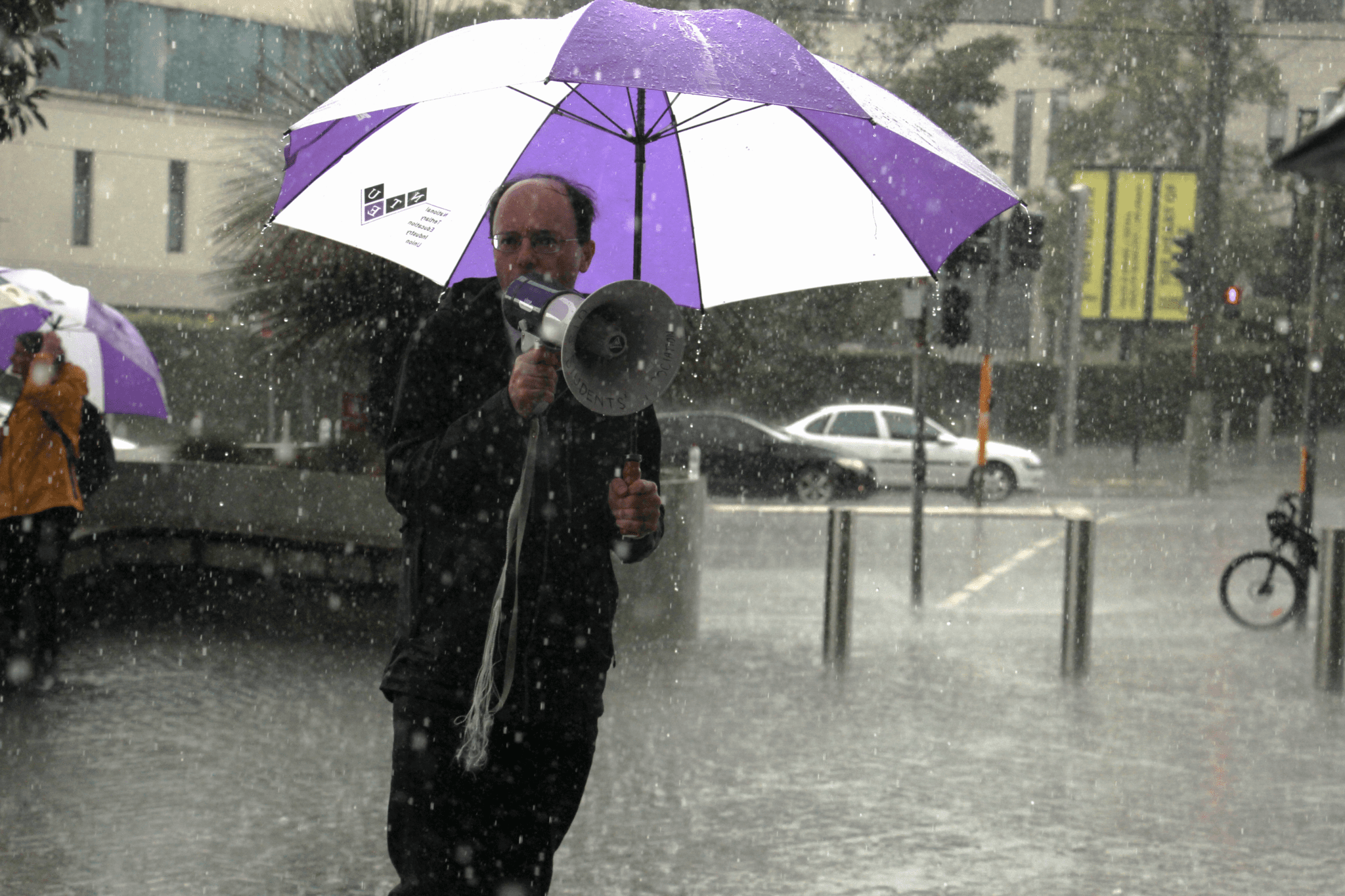
You can donate to the NTEU’s strike fund to ensure the viability of ongoing industrial action at the University here.




